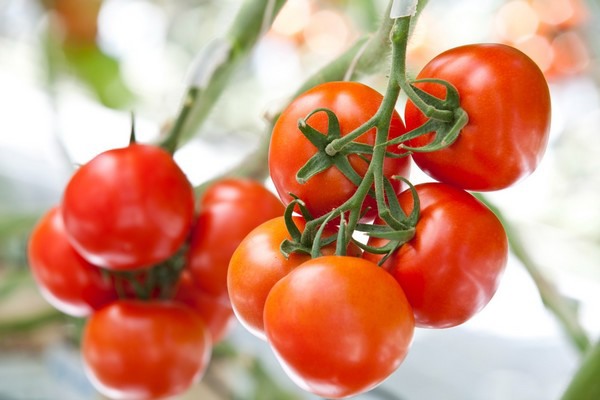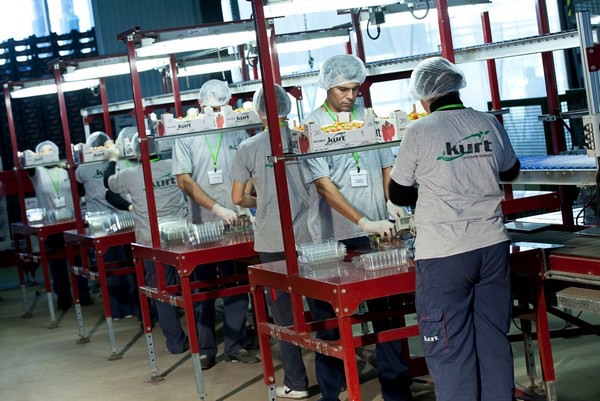In Europe, many greenhouse growers have stopped winter production because of high gas prices. "Nobody is going to put extra gas to heat up tomatoes or peppers, so to say, because the EU needs to provide heating to private citizens first," says Fatih Kördemirci from Kurt Group of Companies. That is one of the reasons why tomato export from Türkiye to Europe is going up. "Here in Türkiye, we heat greenhouses with geothermal water, which is much cheaper than gas," he remarks. "No producer in Türkiye is using gas. Some are using coal, but most of the producers in our region, the Aegean region, are using geothermal water."

Being much cheaper than gas, it goes without saying that the products coming out of Türkiye's greenhouses will be equally cheaper on the market. "This gives us more advantage as we can be highly competitive with our prices." At the same time, geothermal energy is not the only thing that is benefitting Turkish growers. "Nobody in Türkiye is using artificial lights," Fatih points out. "We get plenty of sunlight here. If you have heating and enough light, that's all you need to make a good product. That all is what makes Türkiye a good optional country to deliver more products to the EU market."
Complying with EU standards for export
The Kurt Group of Companies has been active in horticulture since the 80s and has different types of cultivation. "We have a lot of lemon fields in the south of Türkiye. In 2008, we built a 5ha greenhouse where we grow vine tomatoes. In 2011, we built a 1.2-ha plant propagation. In 2015, we built a factory where we dry vegetables and fruit."
Since the tomatoes are meant for the export market, read EU, Fatih and the Kurt Group have to comply with different standards. "The EU doesn't accept produce with a certain level of residue. There are a lot of chemical products that Turkish growers normally use but would make it impossible for them to export to the EU." It can be quite difficult to control that while keeping all sorts of pests and pathogens away from the cultivation. "We have to take care of pain points in the greenhouse, such as controlling the climate and stopping pests and diseases. We have agronomists who are constantly scouting the greenhouse. At the same time, our employees have been in the horti industry for ten years, and have a lot of know-how. So, if they see something they are not sure of, they are always notifying the agronomists, who look for a solution if it's necessary."

At the same time, Fatih takes more direct action to control pathogens. "We are using some chemical products that are in line with EU regulations. We had a huge struggle with tuta absoluta until we found the perfect solution, which is actually not chemical at all. We found this product from a Japanese company, Sumi Agro. It's a pheromone that basically prevents the tuta absoluta from finding mates." While biological solutions can be effective, for some things, Fatih has to spray the plants. "But we are always looking at what the EU allows or doesn't allow," he points out. "The accepted residue level is always documented. If you look at that, a grower would know how many days after spraying they have to wait before the residue levels are low."
While Fatih and the Kurt Group can achieve the quality for export to the EU, he says that not all Turkish growers can do that. "With our high-tech greenhouse, it's easier to produce tomatoes with no residue. But in Antalya, growers are producing in hard weather circumstances, so they fight a lot of pests and can't do anything but spray the plants. Not every grower here knows that the EU allows spraying the plants. It's just that there's a general lack of knowledge with regards to which products they can use and how many days they have to wait after spraying."

Cultivating and drying
As Fatih has pointed out, the company grows its produce in a high-tech greenhouse. "We grow in coco peat, with a greenhouse that stands 5.5 meters tall. This is very helpful for cultivation, as you can better manage the climate. We have an automated irrigation system that provides tomatoes with the exact amount of water, nutrients, and the like they need. For instance, we could even 'divide' the greenhouse into 4 or 6 pieces and provide each of those with a customized irrigation schedule. We have also an automated transport line – you won't see anybody here pushing carts to go from point A to point B. We also have a heating screen, because in the winter it gets quite cold here. But we also use it during the summer to provide some shade to the plants. It can also snow quite heavily during winter, so we put a top heating line for the roof of the greenhouse to melt any snow that would collect there. After all, if you can't get rid of that, the greenhouse would collapse."

The Kurt Group is also active in the drying segment of the industry, with a 4,000 sqm drying facility and another upcoming one of 6-7,000 sqm. "There has been a huge demand for dried produce," Fatih explains. "We process every kind of vegetable and fruit, coming from many different growers." As products kept coming in from growers, the Kurt Group had to expand its capacity. "We have a lot of plans. Next to the drying, we will keep focusing on greenhouses, even more than now. Now, we have 5 ha, but our goal in the next three years is to make 5ha more. And in the next five years, we will try to expand to 15 ha. That's going to be a lot of tomatoes!"
For more information:
Kurt Group of Companies
Fatih Kördemirci
+905072067907
